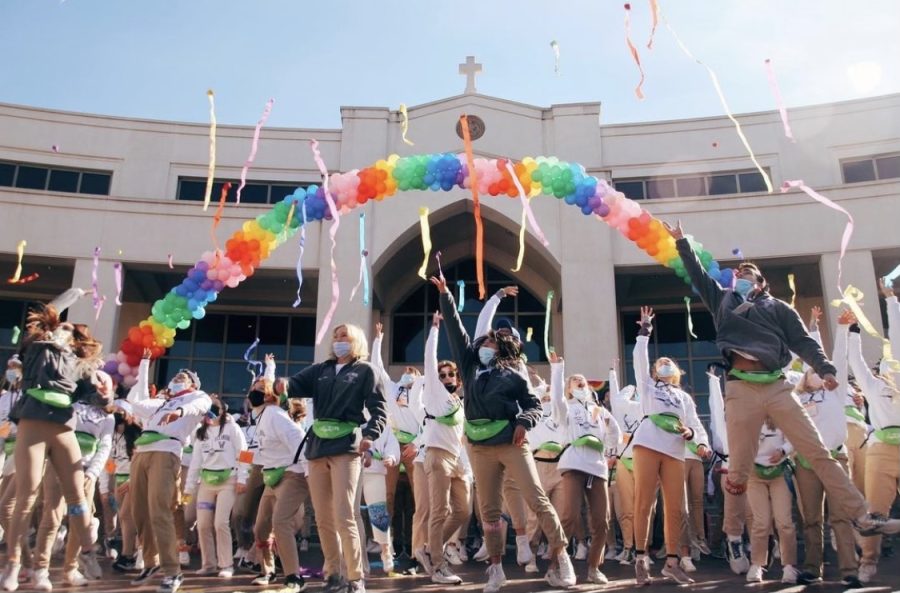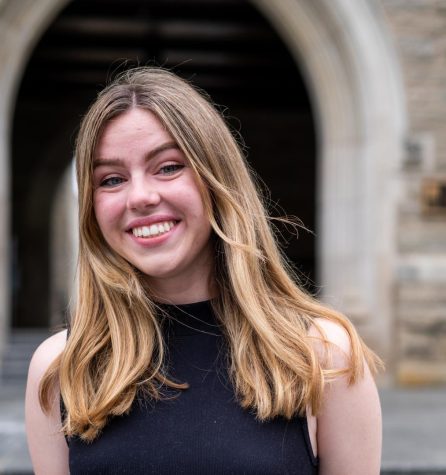SPO Diversity Initiatives Update
Villanova SPO hosts the largest student-run Special Olympics event in the world, known as Fall Fest.
October 26, 2022
Last semester, The Villanovan published an article titled “Privilege and Advocacy: Who is Your Service Really Serving?” In it, Staff Writer Lindsay Gallagher challenged the motivations of students joining two of the largest organizations on Villanova’s campus: Special Olympics and NOVADance. She encouraged students to consider how their race and socioeconomic status factor into the causes they choose to support and pointed out diversity and inclusion shortcomings in both organizations.
Campus was ablaze with chatter, reactions and opinions following its publication. Some students disagreed with the article, like one anonymous commenter who explained that it “[felt] out of pocket to hyperfocus on only two, very different on-campus organizations, that do in fact push their members to understand one’s privilege.”
Others appreciated the article’s fresh perspective, like one student who commented, “I think this article is powerful. If it makes you uncomfortable, there is a reason why. Privilege is a hard topic to confront when you are benefitting from it.”
Now, a few months later, The Villanovan sat down with Villanova Special Olympics (SPO) to learn more about its diversity initiatives and the role of DEI in the organization.
Special Olympics is the world’s largest sports organization for children and adults with intellectual and physical disabilities, which provides year-round training and activities to five million participants. Special Olympics Villanova works with Special Olympics Pennsylvania (SOPA) to host the largest student-run Special Olympics event in the world, known as Fall Fest.
SPO operates through a committee system, with each committee responsible for planning one aspect of the festival, while remaining integrated to the other committees and organization as a whole. The Awareness and DEI Committee is one such committee. The DEI committee, which began in 2020, started with two people and has since grown to five people, with each one serving as a representative and source to a management team (there are five total). Each management team holds roughly five or six committees.
“Each of those committees has a specific role in planning Fall Fest that all should be integrated with DEI,” Karoline Menze, the Fall Festival Director, explained. “I spent a lot of time envisioning what I wanted the committee to look like this year and just generally what I wanted to leave with the organization. A large part of this vision had to do with DEI initiatives and how we can make the organization more inclusive to all individuals. This is something that has been progressing over the past three or so years, but has only continued to grow within large steps every year…I cannot be more happy with how it took shape this year,” she continued.
Corrine Sullivan serves as Chair of the DEI and Awareness committee.
“[DEI] is something we’ve been tirelessly working on since the day we joined this committee,” Sullivan said. “During the weekend, you’re going to see a DEI table to serve as a hub for connection and as a resource provider. However, most of our education has already taken place with the goal that during the weekend everyone feels comfortable, already included, and empowered to empower the people around them. That’s really our dream.”
The DEI committee has undertaken a number of diversity-related initiatives this year, including weekly interactive DEI-related workshops at committee meetings. The workshops have spanned a variety of DEI-related topics, ranging from ASL to race and ethnicity to socioeconomic status and privilege. Other small but significant steps include the inclusion of pronouns for the first time on this year’s Fall Fest name tags and efforts to make the Villanova Special Olympics website accessible to the visually impaired.
“What’s great about the DEI team is that we have students who can really be hands on and infiltrate these management teams, where they can challenge, where they can ask questions, where they can say ‘Hey, are you thinking with an inclusive minded lens?’ and ‘Are you being as diverse as possible in your thought process?’” said Stephen Koch, the Associate Director for Leadership Programs at the Office of Student Involvement. “Challenging the processes, examining what’s been done versus what we should be doing as it relates to the mission of inclusion.”
SPO has also undertaken efforts in order to recruit more students of color.
When initially advertising the committee, SPO held an additional information session, besides the general one, specifically for people of color. The additional information session hoped to provide interested students of color with information on the opportunities SPO has for them and explain the initiatives it is working on to make the organization more inclusive.
“The goal was that that space was an open-arms welcome. We want all individuals of all identities on Villanova’s campus to get involved. No labels should be defining our organization,” Menze said.
Furthermore, SPO has made strides in making the organization more accessible and inclusive to all who wish to join. These include the elimination of an application or interview requirement for LPHs, the expansion of the Inclusion Crew program, non-bias interview training and the practice of blind reading applications.
SPO partners with other organizations on campus to promote DEI, including the Office of Diversity, Equity, and Inclusion (ODEI), CASA/UNITAS weekend, and the Office of Intercultural Affairs (OIA), to help promote its mission of inclusion.
SPO is also involved in fighting for advocating for more access for athletes across Pennsylvania.
“Every year representatives from Special Olympics, PA (SOPA) go to Capitol Hill, with athletes, as well as Villanova students to advocate for individuals with intellectual disabilities’ rights. Every year there’s action, there’s advocacy, there’s talking to people to say ‘Hey, things have to change. What are you doing, Capitol Hill for equal access?’” Koch explained.
SPO has come a long way to where it is today in terms of its diversity initiatives, but it is not content to stop here.
“What we’ve built this year, we hope doubles in size next year,” Sullivan said. “We have so much to learn especially since there are constant nuances in this field. As a general message to the student body, everyone is welcome to talk to us, everyone is welcome to share their ideas, and everyone is invited to let us know how to be better. By leading and learning alongside the students and athletes we hope to inspire change; that starts with a brave culture that is willing to have diverse conversations.”
(NOVADance was also mentioned in the article. The Villanovan has been in contact and will be providing an update).




Ali • Oct 26, 2022 at 12:24 pm
What a lovely article that not only responded to questions that came up last year, but shows the magic of SPO simply through its inclusion and openness. The progression to always getting better despite how much good this organization already brings into the lives of so many families and on campus is admirable and inspiring. Excited for Fall Fest!